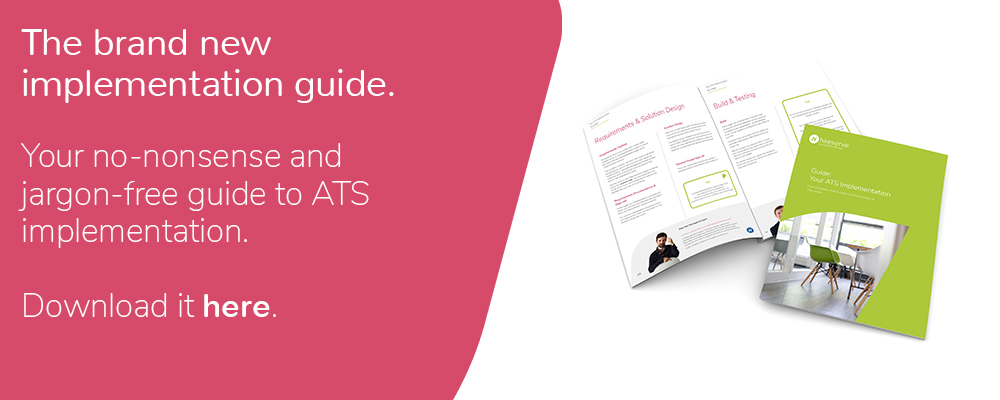Project Management: Great expectations
Embarking on a new recruitment technology selection project, or preparing for your ATS implementation? Strong project management is essential to drive these pieces of work and keep tabs on actions, resource levels and outcomes.
So, we’re welcoming Grace Ashby, Head of Project Management at Embridge Consulting, to the Hireserve blog to share some of her secrets and steadfast rules:
There is plenty of documentation on Project Management best practice, from ensuring everyone knows the goals of the project, to planning, organisation, quality, governance and risk.
It has been shown that those project managers with strong soft skills consistently have a greater track record of success. Hence, here I am going to focus on one part of the range of communication soft skills; managing expectations.
1. Say it how it is
If it’s going to take five months to deliver something and your senior team want it in three, you must share the ‘true’ timeline, as opposed to what your stakeholders want to hear.
This needs to include the underlying reasons why you cannot deliver in three months (for example) – no matter how painful.
2. Under promise, over deliver
Don’t commit to anything until you’ve done your homework. Give the bad news first, and be ready to sympathise with any emotional backlash, but don’t let it persuade you to say something you can’t deliver on.
This can be a hard one to follow through on. I can assure you though, if you promise something and then can’t deliver the outcome, implications are likely to be worse.
3. Stick to your commitments
This is an obvious point but how many times has someone said they will ring you, attend a meeting or set-up a solution by a certain date and then not delivered? Of course, unexpected things happen but, where possible, allow for this.
If you’ve got a meeting at 2pm and you said you would call at 3pm, tell the attendees in the meeting you have a commitment for 3pm and need to leave. Or if it’s late and you’re tired and spending a couple of hours reviewing and signing off that Requirements Capture document doesn’t appeal? Well, remember your commitment and steel yourself for the task ahead.
4. Provide regular progress reports
Whether this is a weekly catch-up meeting, a written report or both, keep stakeholders updated on progress, issues or delays encountered, and how you’ve mitigated them (or not).
The key objective here is to keep your stakeholders updated – and if it’s serious the sooner the better, so there are no surprises.
“Don’t commit to anything until you’ve done your homework…”
5. Tackle difficult items head on
The bigger the project, the larger the implications in terms of delayed benefits, timescales and particularly costs.
I have witnessed senior ‘professionals’ skirting around issues because they are frightened of hearing what they don’t want to, and leaving things unsaid. Both parties then leave the meeting with different impressions of what has been agreed. You can be sure that this disconnect is going to surface down the line and cause an even greater reaction than if it had been discussed and handled earlier. Don’t bottle the difficult conversations – be frank and transparent.
6. Be clear about timescale implications
Often as a project manager it is relatively easy to chase internal resources, but it is not so easy with third parties. If you have resources booked to do work and they need information from a third party for this, then be clear of the timescales required and the knock-on timescales/cost implications if they are not met.
This helps all stakeholders understand the dependency and helps prevent rescheduling in isolation because they thought it didn’t matter.
Hopefully this has given you a brief insight into this powerful communication skill which will help you to manage expectations and hence improve your overall internal and supplier relationships.
Every success to you.
Psst! You may also enjoy our guide to Choosing an ATS.
With interactive templates, checklists and practical guidance, this is your guide to ATS research, demos and selection.
Find out more and download now.



